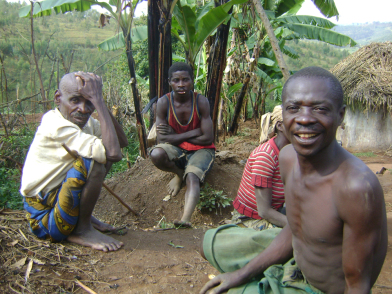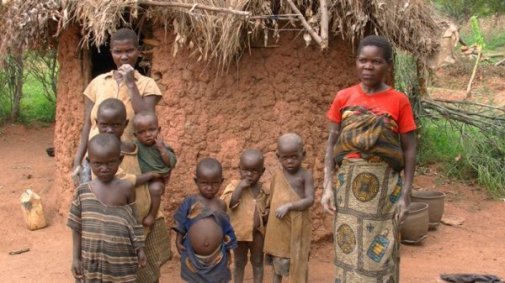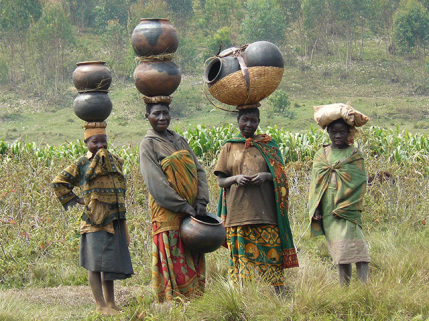The Batwa Project
Their name Batwa derives from “twa”, a term in the Bantu languages of Sub-Saharan Africa to describe people who are primarily hunter-gatherers or former hunter-gatherers. The word Mutwa is used to describe a single person, while Batwa refers a group. They were originally called pygmies because of their short stature.
Due to clearing of the forests for agriculture, logging, development projects, and the creation of conservation National Parks in the 1970s, the Twa have been forced to leave the mountain forests and establish new homes. Most are currently landless and live in poverty. The ancestral land rights of the Twa have never been recognised by their governments and no compensation has been made for lands lost.
Because the Batwa could not continue their practices of hunting and gathering, they turned to pottery, which quickly became part of their identity. However, since plastic containers have largely taken over from the breakable pottery the Batwa potters no longer have much of a market for their pots. Also industrialised pottery has become cheaply available. However, the Batwa continue to produce traditional pottery for its cultural and social significance. Not only do they consider it an ancestral tradition, but also it carries a social importance in their current day society. The process of digging the clay and carrying it to their settlements allows for socialisation and a sense of community among Batwa potters.
Watch two videos of sponsored Batwa students - one is interpreted by Ildephonse, the other is doing amazingly well speaking in English!








